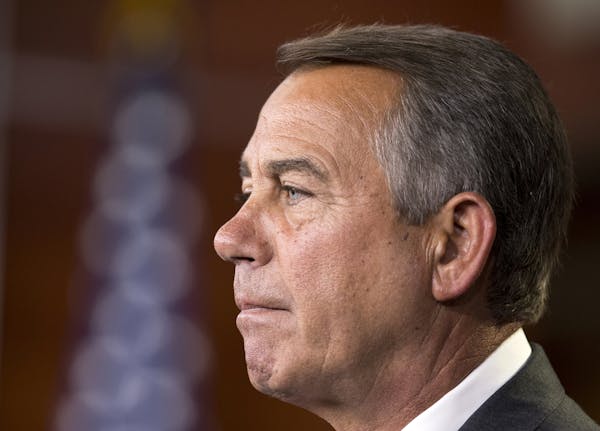The Star Tribune's Opinion Exchange includes perspectives on a wide range of issues in columns, commentaries and editorials.
But reader feedback isn't always commensurate with an issue's importance. The fiscal, political, and generational gravity of the national debt is likely to generate a less passionate reader response than a more personal, pop culture or social issue.
Higher education, however, is the exception. Opinion pieces on topics such as spiraling tuition, administrative bloat, adjuncts forming unions, tenure or the wisdom of studying humanities in a high-tech era often move the readership dial.
So do pieces that debate the value of higher education — despite data suggesting that those with a four-year college degree make $1.2 million more over a career than those with a high school diploma.
These themes are among those explored in "Ivory Tower," a documentary debuting locally this weekend that scans collegiate models ranging from Harvard to nearby Bunker Hill Community College to several in between, including virtual MOOCs (Massive Open Online Courses).
"What we see in the film is that the business model for nonprofit universities and colleges is not sustainable if our mission as a society is to allow higher education to remain accessible to a broad swath of young people in this country, and to preserve its function as an engine of social mobility," Andrew Rossi, who directed and produced "Ivory Tower," said in an interview.
These fundamental questions concern Eric Kaler, president of the University of Minnesota, too. "The current model with appropriate support from the state and recognition of the value of an educated population is on the edge of sustainability," Kaler told me.
Kaler, who has not yet screened "Ivory Tower," and Rossi, who directed the documentary, both pointed to the same transcendent turning point: College perceived as a private rather than a public good.
Rossi called the trend "insidious" and said that it risks the "proud tradition of American intervention in this space to broaden the franchise of education to more and more of the population."
Kaler sees society's shift in perception and summarizes it by saying: "In other words, 'Why should my tax dollars go to benefit you?' instead of realizing it is actually benefiting society." In fact, Kaler added, "It really strikes me that the core of a democratic government is an educated population."
Reflecting the importance of public funding for a public good, Participant Media, one of the studios behind "Ivory Tower," is screening the documentary at some state capitals. This fits Participant's perspective that "a good story well-told can change the world," said Chad Boettcher, Participant's executive vice president of social action and advocacy.
Boettcher's business card suggests this isn't Hollywood hustling as usual. Participant does just that: It often advocates for the social change its films suggest. But because it's hard to quantify advocacy, Participant is partnering with the Bill & Melinda Gates Foundation, the Knight Foundation, and USC's Annenberg School of Communication and Journalism to develop the Participant Index to measure a movie's social impact. Because "Ivory Tower" is on a gradual rollout, it's too early to gauge the reaction. But Boettcher notes that since the issue envelops students, parents, faculty and "the United States in profound ways," the effect is likely to be significant.
Profound indeed. Especially because the debate over higher education's role in the higher ideals of American society has aspects of stratification, like so many other issues vexing the nation.
"It taps into everyone's best hopes and dreams in terms of themselves, and for parents, their children," Rossi said. "But it also is incredibly quite divisive because of the way that college actually provides opportunity for some, and for others — who attend and cannot graduate, or go into crippling amounts of debt, or can't get access to some of the selective schools that are a funnel to middle-class jobs — to them it can be a life sentence that creates a big obstacle to social mobility. So I think it's a very charged topic."
"Ivory Tower" will keep the topic charged, but it asks more questions than it answers. One could say it's Socratic, like a good college class. How the nation fares on the final will tell a lot about the future of higher education, as well as America itself.
John Rash is a Star Tribune editorial writer and columnist. The Rash Report can be heard at 8:20 a.m. Fridays on WCCO Radio, 830-AM. On Twitter: @rashreport.
Ukraine aid vote is a domestic and geopolitical inflection point

Film festival shows the transformative power of art
NATO's strength in numbers makes U.S. more secure


